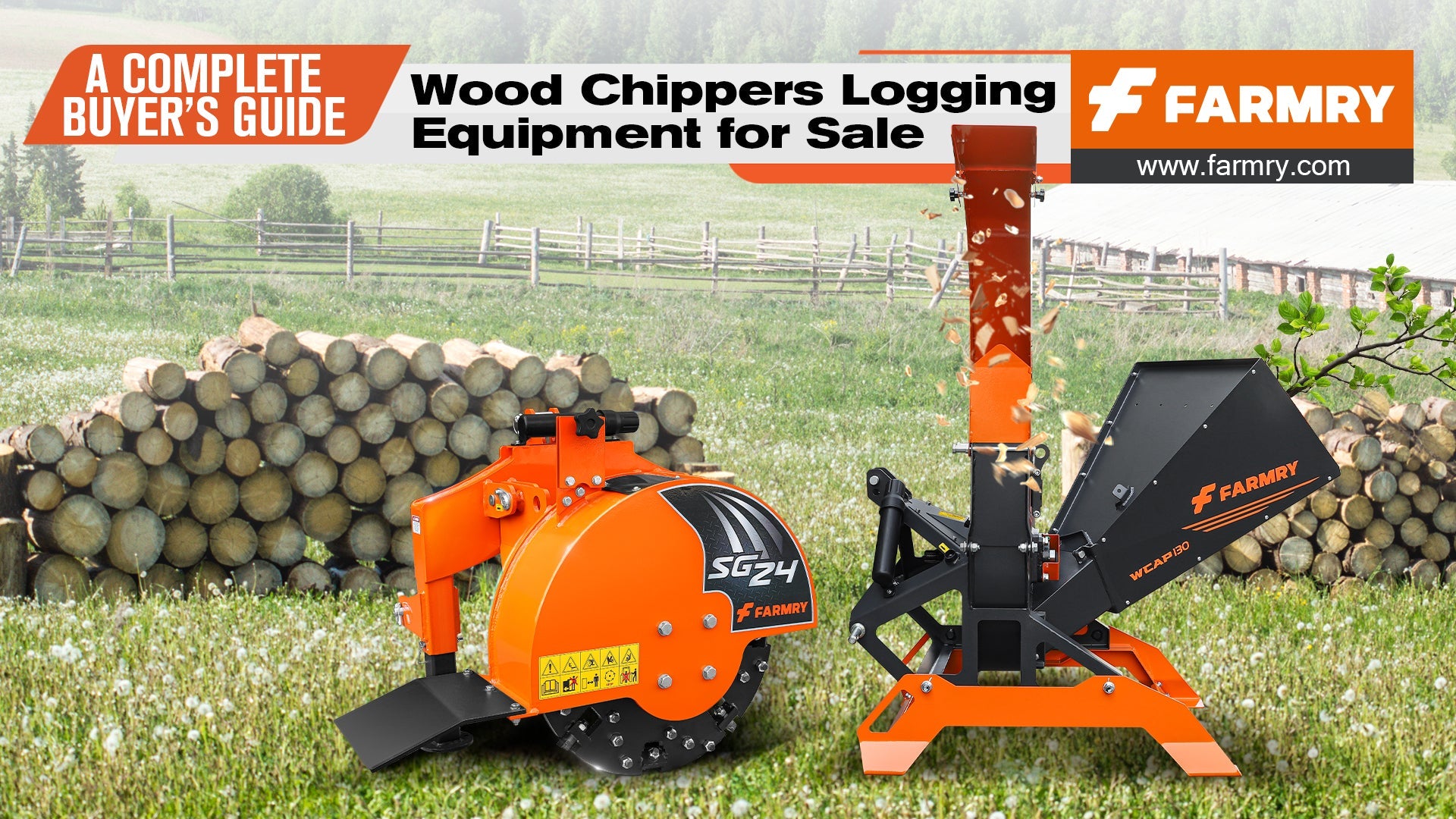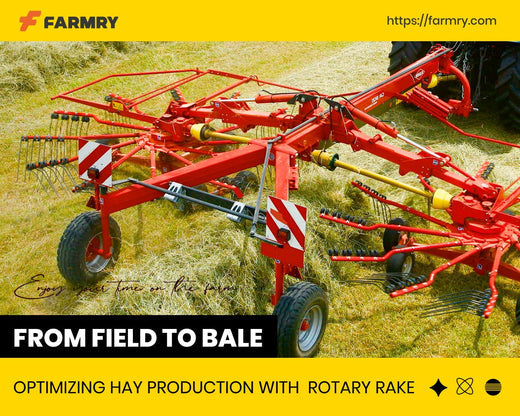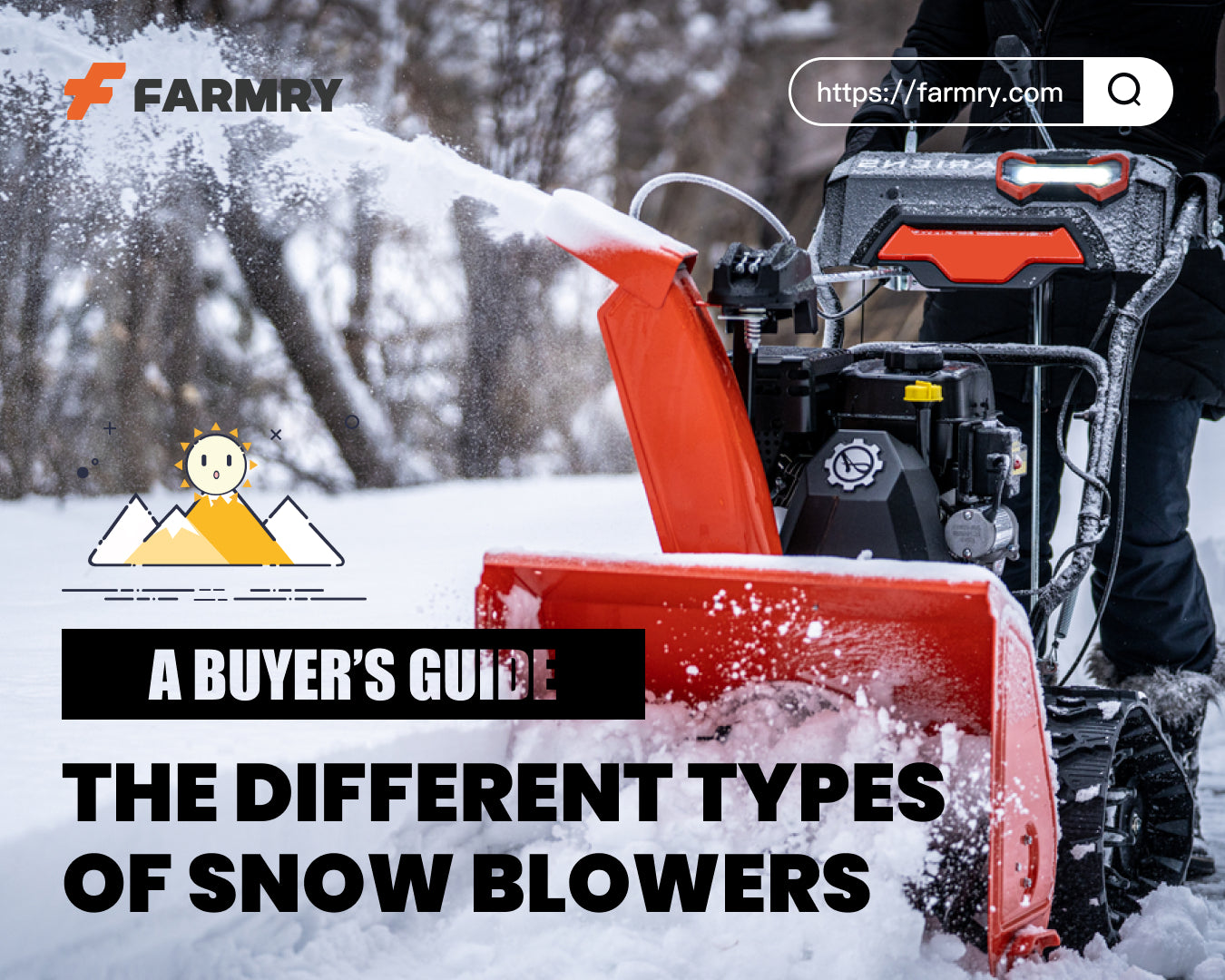Flail Mower vs Finish Mower: Choosing the Right Mower for Your Land
 When it comes to maintaining land, pastures, sports fields, golf courses, or large properties, the choice of mower can directly impact the overall health of your soil, grass, and property appearance. The debate of flail mower vs finish mower is common among landowners, farmers, and landscapers, especially when balancing durability, cost, and results. At Farmry, we design competitively priced, durable equipment to help you get the job done effectively, whether you’re tackling heavy grass, small trees, fence lines, or looking for a clean lawn finish.
When it comes to maintaining land, pastures, sports fields, golf courses, or large properties, the choice of mower can directly impact the overall health of your soil, grass, and property appearance. The debate of flail mower vs finish mower is common among landowners, farmers, and landscapers, especially when balancing durability, cost, and results. At Farmry, we design competitively priced, durable equipment to help you get the job done effectively, whether you’re tackling heavy grass, small trees, fence lines, or looking for a clean lawn finish.
In this guide, we’ll explore how flail mowers and finish mowers differ, their advantages, common pain points from real-world users, and how to select the right mower for your property.
What is a Flail Mower?
A flail mower is a specialized brush cutter that uses multiple small blades (called "flails") attached to a rotating drum. Unlike other mowers that rely on three blades or a deck system, a flail mower is designed for uneven terrain, tall grass, weeds, brush, and even small trees. It’s especially popular in maintaining pastures, fence lines, roadside land, orchards, and areas with heavy vegetation.
Advantages of a Flail Mower
-
Handles heavy grass and brush: Can cut dense material where a riding lawn mower or finish mower would fail.
-
Mulching ability: Excellent at chopping debris into fine mulch, which improves soil health and reduces fuel build up risks from leftover clumps.
-
Safety: Unlike rotary cutters, flail mowers don’t throw rocks or debris as far, making them safer for use near fence lines, roadsides, and properties.
-
Durable design: Built for rough conditions with strong moving parts that resist damage.
Limitations of a Flail Mower
-
Slower cutting speed: Not ideal if you need to maintain a lawn finish or mow large areas quickly.
-
Maintenance: More moving parts mean more upkeep compared to other mowers.
-
Fuel loads: Heavier to operate, requiring larger tractors with more horsepower.
What is a Finish Mower?
A finish mower, often compared to a ride on mower or riding lawn mower, uses three blades under a wide deck to deliver a smooth, manicured cut. It’s the go-to option for sports fields, golf courses, residential estates, and properties where aesthetics matter most.
Advantages of a Finish Mower
-
Wider cutting width: Covers large areas quickly, ideal for properties where time efficiency matters.
-
Blade settings: Adjustable cutting heights allow for consistent mowing across different turf conditions.
-
Lawn finish: Produces a professional, even look that’s perfect for lawns, sports fields, and golf courses.
-
Fuel efficiency: Typically lighter on fuel loads compared to flails or rotary cutters.
Limitations of a Finish Mower
-
Struggles with tall grass and weeds: Not designed for overgrown brush or uneven terrain.
-
Safety: Risk of throwing debris from the blades, especially near fence lines or gravel roads.
-
Durability: Less effective alternative when dealing with heavy vegetation or rough ground.
Flail Mower vs Finish Mower: Side-by-Side Comparison
|
Feature |
Flail Mower |
Finish Mower |
|---|---|---|
|
Best For |
Brush, weeds, pastures, uneven terrain |
Lawns, sports fields, golf courses |
|
Cutting Ability |
Heavy grass, brush, small trees |
Fine lawn grass |
|
Mulching |
Excellent, improves soil health |
Minimal mulching |
|
Safety |
Safer on debris, less throw |
Higher risk of debris throw |
|
Fuel Loads |
Higher, needs larger tractor |
Lower, efficient fuel use |
|
Speed |
Slower, narrow cutting width |
Faster, wider cutting width |
|
Maintenance |
More moving parts, higher upkeep |
Simple blade replacement |
|
Appearance |
Rougher look, effective alternative to rotary cutters |
Clean, manicured lawn finish |
Common Pain Points from Real Users
Based on real personas in the U.S. market:
-
Small acreage hobby farmers love the durability of flails but dislike the slower mowing speeds.
-
Residential estate owners prefer the finish mower for its manicured results, but it clogs with tall grass.
-
Municipal grounds crews find flails safer on roadsides but complain about higher maintenance costs.
-
Ranchers need versatility: finish mowers for horse paddocks, flails for pastures with weeds.
-
Commercial landscapers want the speed of finish mowers but struggle with debris where flails excel.
-
Vegetable farmers use flails for mulching cover crops, though they note quicker blade wear.
-
Roadside contractors rely on flails for safety, but rocky soil causes frequent blade replacement.
-
Orchard owners benefit from flail mulching, but the slower operation increases costs.
-
Weekend landowners face budget decisions: flails are pricier but more versatile; finish mowers are cheaper but limited.
-
Eco-conscious land managers prefer flails for mulching and soil benefits but dislike the higher horsepower and fuel demands.
How to Choose the Right Mower
When choosing between a flail mower vs finish mower, consider these factors:
-
Land Type – If you maintain pastures, brush, or uneven terrain, a flail mower is the right mower. For lawns and sports fields, a finish mower wins.
-
Grass and Vegetation – For heavy grass, weeds, and small trees, flails dominate. For regular mowing and lawn finish, finish mowers shine.
-
Cutting Heights – Flails offer more flexibility for mulching and brush control, while finish mowers have finer blade settings for uniform turf.
-
Maintenance – Finish mowers are easier to maintain with fewer moving parts. Flails require upkeep but reward with mulch and durability.
-
Fuel & Tractor Power – Flails need stronger tractors and more fuel loads; finish mowers are lighter and more fuel-efficient.
-
Budget – Flails are often more expensive but provide an effective alternative to rotary cutters. Finish mowers are more competitively priced but limited in rough conditions.
Farmry Flail and Finish Mowers
At Farmry, our mission is to give landowners durable, competitively priced machines built to maintain large areas, lawns, and pastures with confidence. Whether you’re operating a tractor to clear brush, maintaining golf courses, or managing fence lines, we offer the right mower for your needs.
-
Our Flail Mowers feature a durable design, multiple blade options, and excellent mulching capability for uneven terrain, tall grass, weeds, and small trees.
-
Our Finish Mowers are engineered for sports fields, estates, and lawns, with adjustable blade settings, wider cutting width, and efficient performance.
Both mower types are built with quality moving parts, designed to maintain land health, reduce maintenance costs, and help you operate efficiently.
Final Thoughts
The mower vs mower debate—flail mower vs finish mower—comes down to your land, vegetation type, and goals. If you need to tackle brush, heavy grass, and uneven ground, a flail mower is the most effective alternative to rotary cutters. If you want a smooth, manicured lawn finish across large areas like sports fields or golf courses, a finish mower is the right choice.
With Farmry’s competitively priced, durable design machines, you’ll find the mower that helps you maintain your property, improve soil health, and operate efficiently.






